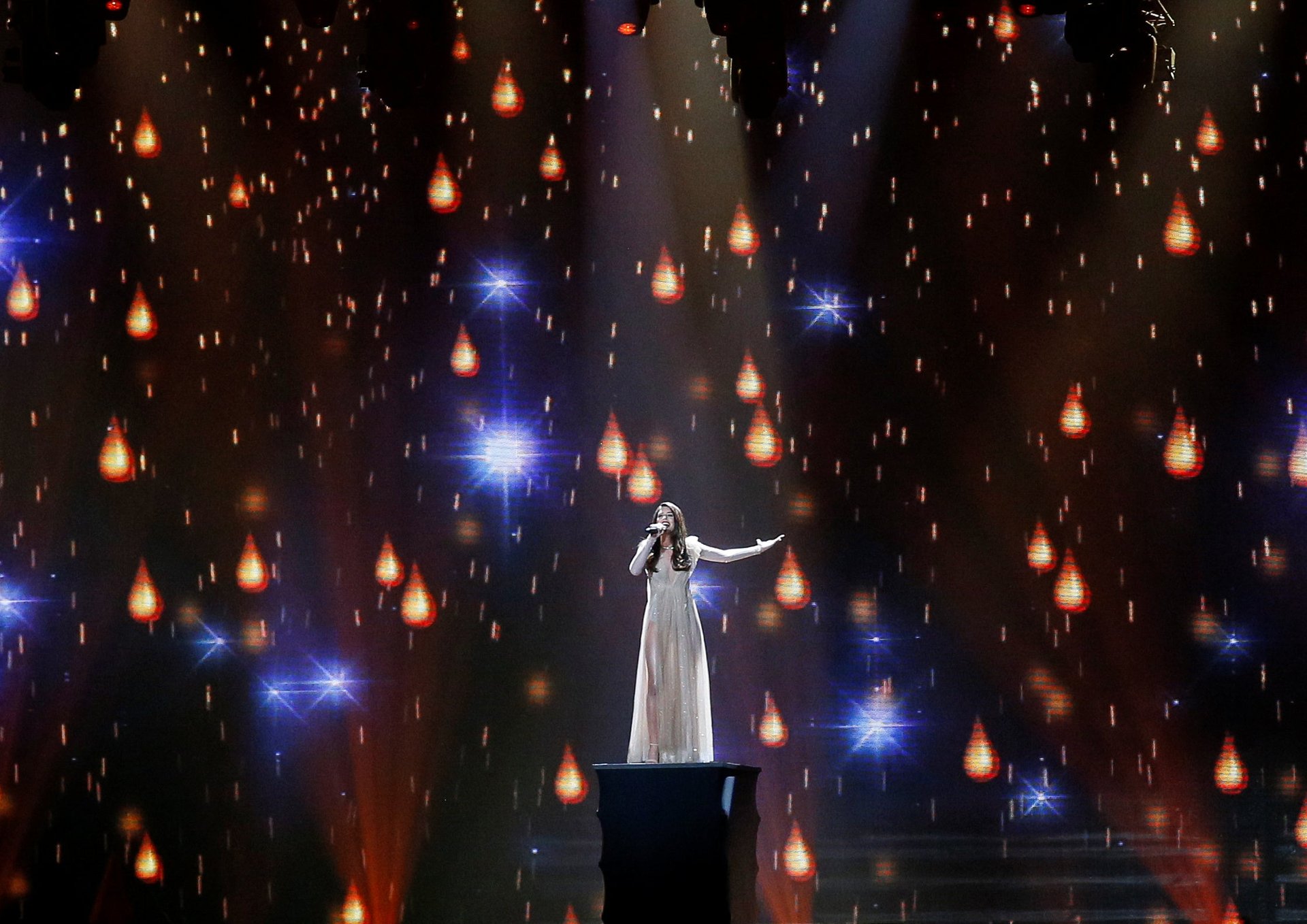How to watch the Eurovision song contest from the US—complete with a side of geopolitical turmoil
Eurovision, the international song contest entering its 62nd edition this year, is back.


Eurovision, the international song contest entering its 62nd edition this year, is back.
If you are an American not yet familiar with the competition—you should be. It’s like “American Idol” and the World Cup put together, for a colorful, over-the-top worldwide event that’s so bad it’s good.
And it’s a spectacle with a surprising historic connection.
“Cheesy as it may be, it is an international phenomenon. Eurovision, originally conceived to unify Cold War Europe, has been going on since 1956—pre-dating the European Union by decades, and even the European Economic Community by a year.”
While this year’s theme for the event in Kiev is “Celebrate Diversity,” 2017 may go down in Eurovision history as having even more geopolitical drama than usual.
(The uproar this year comes after organizers have tried, and previously failed at keeping politics from playing out on the main stage).
Russia barred from the competition
Last year, jazz singer Jamala of Ukraine won the competition—beating out Russian pop star Sergey Lazarey, who came in third. As Quartz’s Hanna Kozlowska wrote:
The Ukrainian entry is “1944,” a song that decries the deportation of 240,000 Tatars, a Muslim minority, from Ukraine’s Crimea during World War II by Stalin—the same region Russia annexed in 2014. Jamala, whose great-grandmother was among those deported during the war, sends a thinly-veiled message to Russia, which is also sponsoring a rebellion in the eastern part of Ukraine, asking the country not to swallow the Tatar soul.
Jamala’s triumph meant that the 2017 contest would be held in the Ukraine, in keeping with the event’s tradition. But those hoping for a rematch between Russia and Ukraine in this year’s finals will be disappointed.
In March, Ukraine banned Russian competitor Julia Samoilova from coming into the country. The ban stemmed from what Ukraine called “an illegal visit to sing in Crimea” in 2015, in which Samoilova reportedly went to the disputed territory through Russia rather than the Ukrainian mainland, the BBC reports.
Russia’s deputy foreign minister Grigory Karasin called the decision a “cynical, inhumane act.”
The European Broadcasting Union offered to allow Samoylova to participate via a satellite connection—an idea proposed to deescalate the fallout, but that both countries quickly rejected.
How to watch Eurovision 2017 from the US
The 2016 Eurovision song contest, which aired in three live showings from Stockholm, Sweden, was seen by more than 200 million viewers, according to the program’s website.
This year’s performances will run on May 9, 11 and 13 at 21:00 Central European Summer Time (CEST).
The May 13 final will be streamed for a US audience on Logo’s website, YouTube page, and the channel’s app.
The event is also chronicled in live updates on the main Eurovision website.